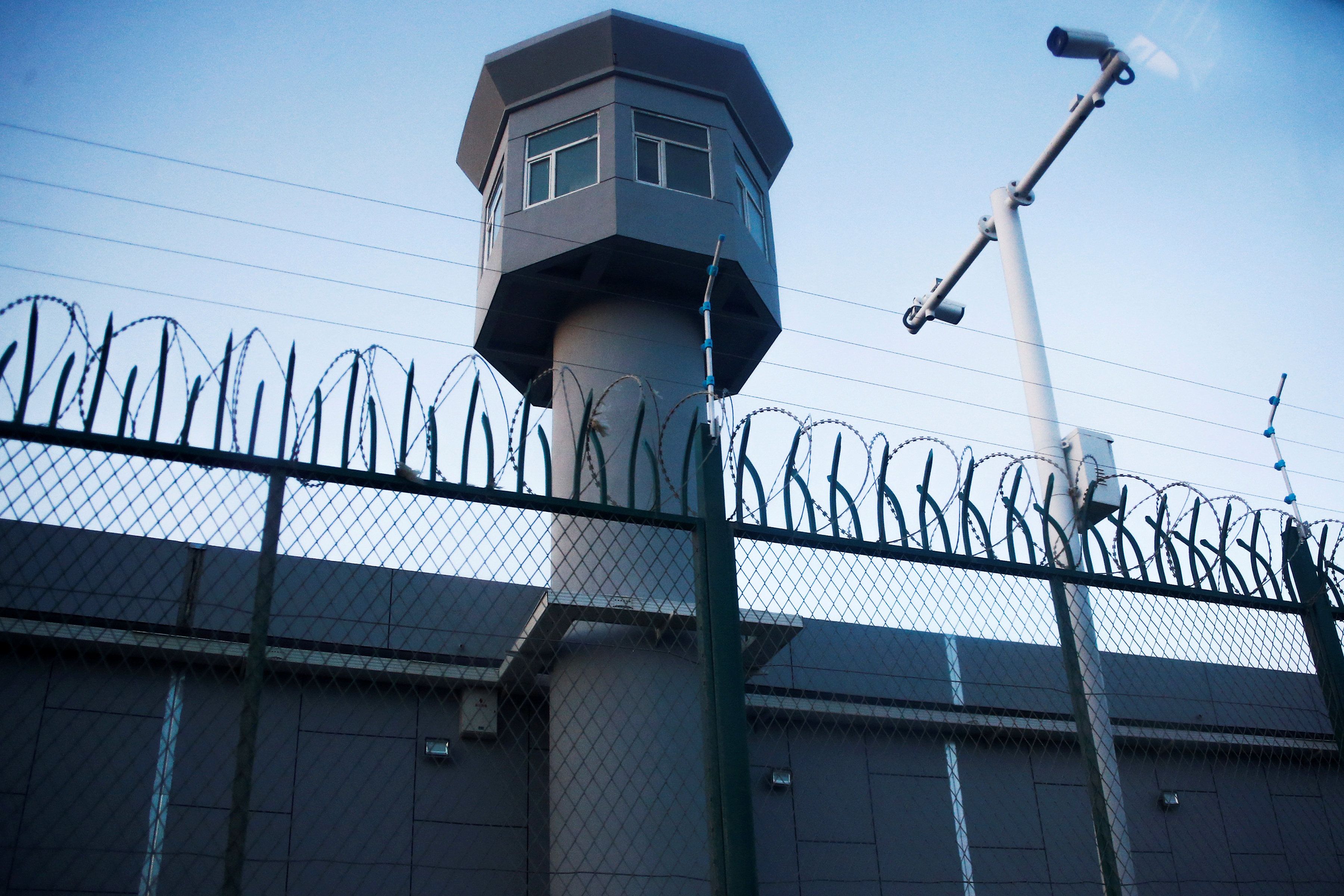November 25, 2019
More details about Xinjiang: The world already knew that China has imprisoned more than a million ethnic Uighur Muslims and other minorities in camps in the country's far-west Xinjiang province. Beijing says the prisoners are volunteers receiving job training. Rights groups say they're locked in mass incarceration "re-education camps" designed to indoctrinate ethnic minorities. But a classified blueprint of the system that's been leaked to the media now details life on the inside. The camps reportedly have watch towers, double-locked doors, and video surveillance "to prevent escapes." What's more, the Chinese state is evidently using the camps to train its artificial intelligence programs for use in mass surveillance. This is the largest incarceration of people based on an ethnic or religious identity since the Holocaust. We're watching for any sign the governments of predominantly Muslim countries, the US, or Europe will take meaningful action against the Chinese government.
Press crackdown in Egypt: Over the weekend, Egyptian authorities raided the offices of the digital publication Mada Masr, one of the country's last bastions of independent investigative journalism. Top editors were arrested, and there's a decent chance it had to do with the site's publication, just days earlier, of a report that strongman President Abdul Fattah el-Sisi's son had been quietly removed from his senior role in the intelligence services due to poor performance. Though Mada Masr is well-accustomed to the security apparatus' techniques used to intimidate journalists, the clampdown has been more aggressive since anti-government protests broke out in September. Egypt ranks 163rd of 180 countries in the 2019 World Press Freedom Index, published by Reporters Without Borders.
A breakthrough in Bolivia? Supporters of ousted president Evo Morales have reached a deal with the new interim government to ease tensions and pave the way to new presidential elections. Under the pact, approved over the weekend by a Congress that Morales' MAS party still controls, lawmakers will appoint a new electoral board that will set the date for a vote early next year. Morales himself will not be permitted to run. Pro-Morales groups and unions have agreed to take down hundreds of road blockades that have strangled the Bolivian economy in recent weeks, and interim-president Jeanine Áñez has begun meeting with pro-Morales activists. But things aren't exactly going swimmingly: Morales' party wants to exempt him from prosecution for backing the blockades, while the new interior minister wants to jail him for the "rest of his life."
What We're Ignoring
The Pope's call to banish nuclear weapons. Look, it's not that we are opposed to eliminating the world's most dangerous weapons. It's just that only one of the nine nuclear powers has a majority of people who consider themselves Catholics—and just 15% of French adults say they are "practicing." Which leads us to the old line: "And how many divisions does the Pope have?"
More For You
- YouTube
At the 2026 Munich Security Conference, entrepreneur and Project Liberty founder Frank McCourt makes the case that the internet, and the AI systems rapidly reshaping it, must be redesigned to serve people, not platforms.
Most Popular
- YouTube
At the 62nd Munich Security Conference, Parag Khanna, founder and CEO of AlphaGeo, says globalization isn't dead, it's evolving. Speaking with GZERO’s Tony Maciulis, he explains that countries are forming flexible alliances that expand and shrink based on their interests. “You’d rather be in the tent...if it suits your interest than not in it,” Khanna notes, highlighting how the US, Europe, and Asia are adapting to shifting global priorities.
- YouTube
Sovereignty has become one of the most powerful, and least defined, words in tech policy. At the 2026 Munich Security Conference, SAP global head of government affairs, Wolfgang Dierker, explains why governments and enterprise customers are demanding more control over their data, cloud infrastructure, and AI systems amid rising geopolitical uncertainty.
- YouTube
On the sidelines of the 2026 Munich Security Conference, Annemarie Hou, Executive Director of the United Nations Office of Partnerships, joined Tony Maciulis to discuss the power of women leaders in global decision-making.
© 2025 GZERO Media. All Rights Reserved | A Eurasia Group media company.
